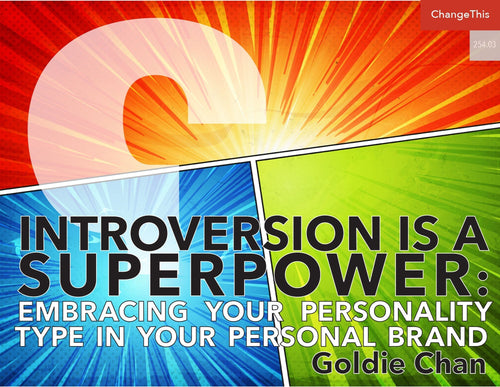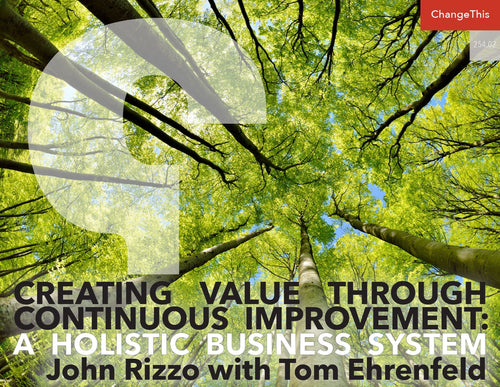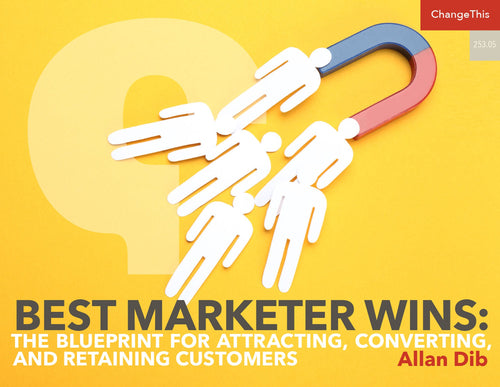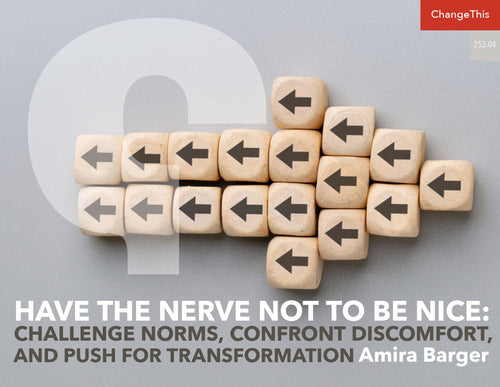The Entrepreneur's Manifesto: Habits of a More Resilient Business Leader
"Did you know that there are roughly 27.9 million business owners and entrepreneurs in the United States who work in their business every day but are unhappy, stressed, and not thriving?
I should know, I was one of them."

Did you know that there are roughly 27.9 million business owners and entrepreneurs in the United States who work in their business every day but are unhappy, stressed, and not thriving?
I should know, I was one of them.
I had a great reputation working with hundreds of troubled businesses and entrepreneurs as an economic and small business development consultant for the United States Agency for International Development (USAID), including seven years in the former Soviet Republics of Central Asia. I had a great resume. I’d been the Director of National Service Programs for Habitat for Humanity, which included being Habitat’s chief liaison with The White House, Congress, and the Corporation for National Service. You would have thought that I was living the dream. But I was not—I needed more.
So, in 2007, I resigned from my lucrative consulting career to co-start a toy company called Wild Creations. I had experience, I understood the market, and I knew, or so I thought, exactly what I was doing. I was going to be an entrepreneur. It didn’t take long for me to realize that while I thought I knew what I needed to be a successful entrepreneur, I actually had no idea what being an entrepreneur truly meant. Less than two years later, the economic downturn left me uninspired, exhausted, and nearly bankrupt.
At that point, I was forced to step away and take a really good look at my company, and at myself, to analyze the things that were holding Wild Creations back. That was when I realized it was going take more than a few quick fixes to transform this company into a success. I couldn’t just run a business. I needed to devote myself to the business; daily. I knew immediately that the changes that needed to be made were going to have to start with me. I had been helping other people develop their businesses for years, but in reality, I had no idea how to develop my own. I knew that in order to succeed in this endeavor, I would have to evolve into a stronger, smarter, and more resilient business leader.
What did that mean, exactly?
Well, it meant that I was going to have to stop doing all of the things that I was accustomed to doing and take the time to focus on creating better habits personally and professionally.
A habit is literally defined as a “settled or regular tendency or practice, especially one that is hard to give up.”
An MIT researcher recently identified which parts of the brain are directly related to habit formation; the most important being the basal ganglia. The research showed that the basal ganglia are responsible for actions related to movement control, emotion, cognition, and reward-based learning. The two specific areas that proved to work in unison to form habits were the dorsolateral part of the striatum (seeing, hearing and moving) and the dorsomedial striatum (flexible behavior and associations). Basically, those two parts of the brain determine what happens when we move a part of our body in a new way and it feels good. When a person feels a sense of accomplishment because they succeeded or tried something new, the association is recognized in the dorsomedial striata. The brain then acknowledges reinforcement that this new activity is a good thing. When this happens, you begin a routine of participating in a habit, to the point where you sometimes do things without even recognizing that you did them in a conscious sense. The habit becomes a part of you.
“In fact, the brain starts working less and less,” says Charles Duhigg, author of The Power of Habit. “The brain can almost completely shut down … And this is a real advantage, because it means you have all of this mental activity you can devote to something else.”
When it came to my new endeavor with Wild Creations, I still had the habits that I had formed as a consultant. I hadn’t developed new habits as an entrepreneur. In fact, studies have shown that organizational habits form among employees that work within the same company. It was during one of those aha-moments when I realized I had to change and form different habits. If I wanted to succeed as an entrepreneur, I was going to have to create a set of habits.
“When [Alcoholics Anonymous] started, there was no scientific basis to it whatsoever. In fact, there’s no scientific basis to AA. The 12 steps that are kind of famous? The reason why there’s 12 of them is because the guy who came up with them—who wrote them one night while he was sitting on his bed—he chose them because there’s 12 apostles. There’s no real logic to how AA was designed. But the reason why AA works is because it essentially is this big machine for changing the habits around alcohol consumption and giving people a new routine, rather than going to a bar or drink … It doesn’t seem to work if people do it on their own. At some point, if you’re changing a really deep-seated behavior, you’re going to have a moment of weakness. And at that moment, if you can look across a room and think, ‘Jim’s kind of a moron. I think I’m smarter than Jim. But Jim has been sober for three years. And if Jim can do it, I can definitely do it,’ that’s enormously powerful.”
What was the result of my personal evolution and consistent development of new habits? Wild Creations was awarded a Blue Ribbon Small Business Award by the U.S. Chamber of Commerce and consequently named one of Inc. Magazine’s 500 Fastest Growing US Companies two years in a row. The Wild Creations team won over 40 national awards for their innovative toys, and I was a finalist for Ernst and Young’s Entrepreneur of the Year Award in 2011, followed by another nomination in 2012.
I also came to understand in the early years of the business that we are operating in a society that is defined by instant gratification. We expect immediate results and are surprised when quick fixes fail to produce lasting change. That was my biggest problem—I was expecting instant success. I thought going into business would be easy. I had a great partner. We had a great product. What could go wrong? We thought success was guaranteed and would be instant. But it wasn’t until we changed our mindset and developed new habits when we began to thrive. The daily practice and reinforcement of those habits was actually changing the way that my brain thought about being an entrepreneur. I didn’t have to try so hard; the activities, the culture that I was creating, became my normal. They were subconscious and habitual and they were working.
That realization led to the idea for writing The Entrepreneur’s Book of Actions: Essential Daily Exercises and Habits for Becoming Wealthier, Smarter, and More Successful, a 53-week reader that encourages entrepreneurs and leaders to take action daily to break old habits and think in new ways.
One habit that I find very common in most people who are struggling is the way that they talk to themselves. Whether you’re aware of it or not, you’re constantly carrying on a conversation with yourself. You have a thought, and you respond to the thought either positively or negatively. Most of us tend to “choose” a negative response because of our self-doubt. Stepping away to view the thought objectively takes work, for most of us.
For example, let’s say you’re about to go into an important meeting and you’re starting to feel nervous. You have an idea you think might help resolve a particular issue that’s scheduled for discussion in the meeting, but suddenly your mind is flooded with thoughts of self-doubt. How will you respond? Will you choose a negative response to your thoughts or be objective and choose a more positive response:
Response A: I’d better just keep my mouth shut. My idea is probably not as good as I thought, and I’ll just end up looking foolish.
Response B: I’m going to go ahead and present my idea. Even if it’s rejected, it shows I’m thinking proactively about the issue and trying to contribute to a solution.
Response A guarantees failure because it means you won’t even risk trying. You’ve reacted and chosen a negative self-talk response. Response B, the positive choice, means that you’re willing to risk failure, and trust that either way, you’ll be fine. Positive self-talk is supportive and affirming. The fact that you have this capacity for inner dialogue and the ability to direct it, is precisely why the stories you tell yourself matter.
Here’s a little secret successful people have learned: Even more important than what you say, is how you say it. If you can learn how to step back and witness the conversation from a third person perspective, you’ll have a much easier time coming up with positive responses to negative thoughts.
For example, motivational speaker Brené Brown, who is also a professor at the University of Houston Graduate College, refers to the negative “voices” in her head as her “gremlins.” By doing this, she not only distances herself to gain some perspective, she also makes fun of them! Learning how to be objective about the ever-present voices in your head may take some practice at first, but once it becomes a habit, it’ll become automatic and you’ll find your life—both personal and business—changing in positive ways.
Why Do You Have to Change?
Let’s face it, the days of unrelenting brand loyalty that companies like Sears and McDonald’s once enjoyed is forever buried in our past. Today’s consumer is more sophisticated armed with smartphones and apps that give us instant information about all the choices we now have.
In fact, there is only one-way for you to compete as an entrepreneur in this new, ever-changing world and that is a personal evolution. You must evolve into a stronger, smarter, more resilient business leader. You have to thrill your customers. Inspire your staff. Seize opportunity and never stop growing; and develop habits that will support your endeavor.
Think of it like this: your business is like a well-trained muscle. If you ignore it, it will experience atrophy, be weak and unable to do even the simplest of tasks. If you work it out every day, it will be strong and healthy. As an entrepreneur, you must work at making changes and creating better habits every day; leading you right to the place where you can be most successful. Just like Duhigg stated in the quote about Alcoholics Anonymous; you have to devote yourself to changing your habits. Forever. It doesn’t matter why it works; it simply matters that it works, it’s consistent, and it’s inspiring change.
Are you an Excuse Machine?
The secrets to success have been published and discussed by successful people over and over again, from Norman Vincent Peal to Napoleon Hill. These secrets can be summarized as gaining self-knowledge and concentrating on making that self-knowledge work for you. That is a relatively easy concept to understand, but it is the second part that makes success “hard.”
Perhaps the core of the problem is that we often make excuses for our failures. One of the most important moments of my business life was when I realized just how many excuses I was making on a daily basis. Each day thoughts such as “Working out is too grueling, I’ll just skip it” or “I’ll never get this job, so why should I even apply?” would pop into my head, and I wouldn’t give them a second thought. Once I saw how many excuses I made each day however, I began to take steps to remove them from my life. I believe anyone can get beyond excuses with a little work, so here’s how I’ve trained myself to avoid making excuses.
Ask “Is This True?”
Whenever I catch myself making an excuse for something, I ask myself “Is this true?” or “Does this need be true?” For example, if I catch myself saying that working out is too grueling, and it will be an unpleasant experience, I ask myself if this is in fact the case—to which the answer is “Of course not.” All I need to do is find a workout program that I will enjoy, rather than forcing myself to do one that I find unpleasant.
Reflect On Your Excuses
At the end of each day, I take a few minutes to look back on the excuses I made that day, and try to figure out why I made them. I make a mental note of the things I am avoiding, and try to look for better ways to approach them. The only way to start combating excuses is to notice them, and taking time to reflect helps me to do this.
Find People to Push You
Lastly, you should surround yourself with people who will call you out on your excuses. Holding yourself accountable is one thing, but it is much more effective if you have other people holding you responsible as well. Find a workout partner, or someone who will check in on you each day to ensure you met your goals, and didn’t find an excuses.
Training myself to avoid making excuses was not easy, but it was worth it in the end. Now each day I can catch myself if I am making an excuse, challenge the assumption behind it, and I have people around me who will push me through those difficult days. With excuses gone I get more done, and I feel better about myself. With a little training, you can too.
Don’t Try to Find Validation from Others
Most people care what other people think to some extent. However, if you are a people pleaser who needs validations throughout the day it can be tough being an entrepreneur.
In order to find happiness and self-confidence consider some ways that will help you accept yourself and find validation from inside. Internal validation means you find answers with introspection. People who are internally validated know how to like themselves. They don’t need outside approval to feel happy. Super successful people do not worry what their critics have to say good or bad because they know how to find confidence and security inside not externally.
You Have to Look in the Mirror
One reason you should stop caring what people think about you is because no one else is your judge. You define your ethics and values. Spend time every day getting to know yourself. Think about what matters most to you. Reflect on your history and how you have grown or evolved as a person.
You Define Success with Your Goals
Spend time writing down your goals so you are more aware of what you want in life and with your business. It doesn’t matter if someone else thinks you should go a certain direction with your work since you know the path you are on.
If you worry what others think, you are wasting time because they could be criticizing you for something they regret.
You Control Your Feelings
Contrary to popular belief, people can’t make you feel a certain way about yourself. You decide how to respond to what others say. Choose to turn a negative into a positive or an opportunity to learn or grow. Only you can make you happy. Don’t count on others to validate how you feel about yourself and your work. You have to take steps to find validation from within if you want to be truly happy and successful.
As you learn to develop these good habits, they will help you lead better, work in a manner that is more focused, and that will ultimately help you find the success you want. Your new habits will allow you to hit the “reset” button and approach your entrepreneurial destiny with a sense of clarity and purpose.
As you devote your time to learning and implementing the changes you want to make, be sure to be brutally honest with yourself about your weaknesses. I know that’s easy for me to say, but doing it is quite another thing all together. Trust me when I say this—the hardest truths to admit are often the most liberating once they’re truly acknowledged. So don’t sell yourself short; dig deep and look for the answers from within.
It’s time for you to get to work on yourself so you can be the leader and entrepreneur you want to be.
About the Author
Rhett Power is co-founder of Wild Creations, an award-winning start-up toy company named one of Inc. Magazine’s Fastest Growing US Companies. A member of the United States Department of State’s International Speakers Program, he travels the globe speaking about entrepreneurship, leadership, and management alongside the likes of Gates Foundation CEO Sue Desmond-Hellmann, AOL Founder Steve Case, and President Barack Obama. He has written for the Huffington Post, Business Insider, Time, and The Wall Street Journal. Power lives in Washington, DC.











































